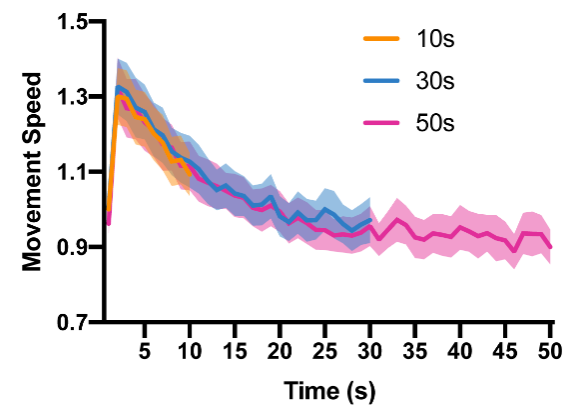Motor Fatigability
Motor fatigability, the measurable decline in motor performance, is a common occurrence in our daily lives, arising when we perform tasks for an extended time period, like cycling to work. Increased motor fatigability has been linked to neurological disorders such as Parkinson’s disease or multiple sclerosis, leading to decreased quality of life (Kluger et al., 2013; Manjaly et al., 2019). Understanding the underlying mechanisms of motor fatigability is therefore crucial to enhance the treatment of such patients in the long-term.

In our lab we use fast, low-force repetitive movements, such as finger tapping, to induce motor fatigability (Bächinger et al., 2019; Rodrigues et al., 2009). This paradigm leads to a decline in movement speed, known as "motor slowing" (Bächinger et al., 2019). Motor slowing has primarily been associated is associated with supraspinal rather than neuromuscular or spinal mechanisms (Bächinger et al., 2019; Gandevia, 2001; Gandevia et al., 1998; Gandevia & Taylor, 2006; Smith et al., 2007; Søgaard et al., 2006). In our lab, we investigate motor slowing with different techniques (including EMG, fMRI, TMS, EEG, and pupillometry) in combination with different manipulations (for example reward) to gain a better understanding of supraspinal mechanisms involved in motor fatigability.